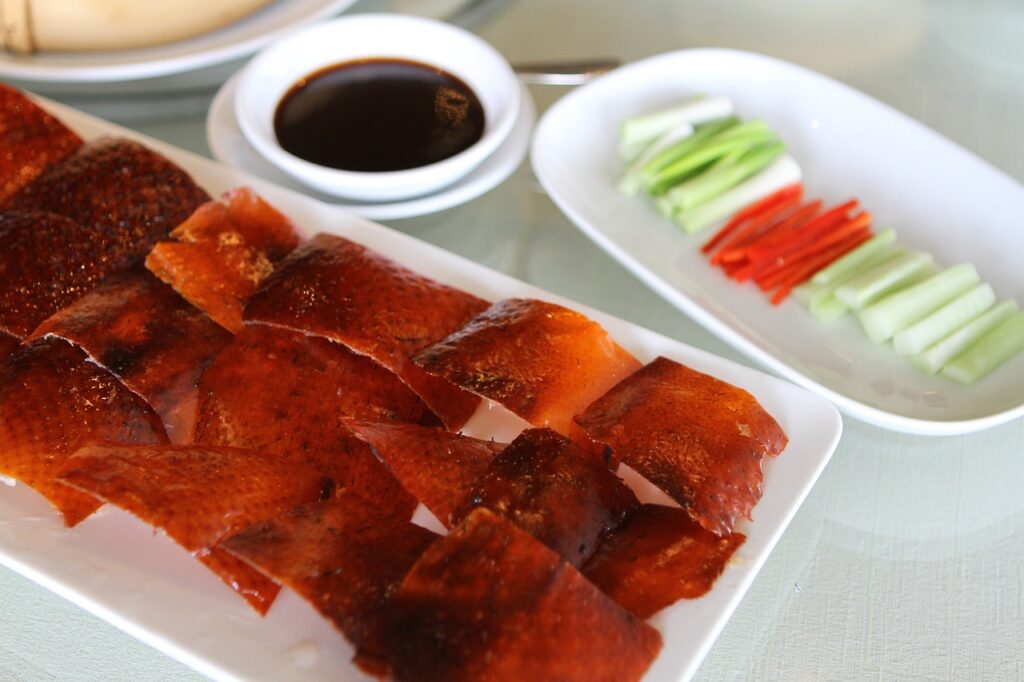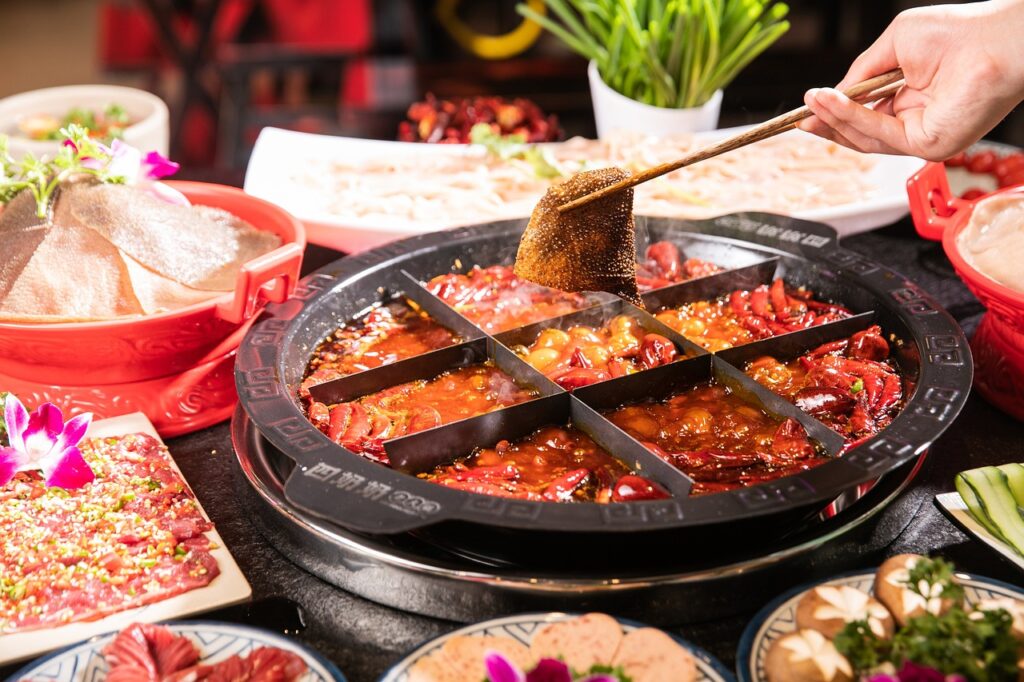Chinese cuisine is renowned worldwide for its rich flavors, diverse ingredients, and exquisite culinary techniques. Rooted in a history spanning thousands of years, traditional Chinese cuisine embodies the cultural heritage and culinary artistry of one of the world’s oldest civilizations.

Historical Origins:
Traditional Chinese cuisine traces its origins back to ancient times when culinary traditions were shaped by agricultural practices, social customs, and philosophical beliefs. Over millennia, Chinese cuisine evolved through dynastic changes, cultural exchanges, and regional influences, resulting in a rich tapestry of flavors and techniques.
Regional Characteristics
China’s vast landmass and diverse geography give rise to a wide array of regional cuisines, each with its own distinctive flavors and ingredients. From the hearty and robust dishes of the north, featuring wheat-based staples like dumplings and noodles, to the delicate and seafood-centric cuisine of the south, Chinese regional cuisines offer a tantalizing journey through the country’s diverse landscapes and cultural heritage.
Culinary Techniques
Chinese culinary artistry is characterized by its meticulous attention to detail and mastery of various cooking techniques. Steaming, stir-frying, braising, and roasting are just a few of the many culinary methods employed to create dishes that are not only delicious but also visually stunning. Passed down through generations, these techniques showcase the skill and craftsmanship of Chinese chefs.
Cultural Significance
Beyond mere sustenance, traditional Chinese cuisine carries profound cultural meanings and symbolism. Many dishes are associated with auspicious occasions, festivals, and familial gatherings, symbolizing harmony, prosperity, and good fortune. Moreover, culinary traditions such as tea ceremonies and banquet rituals play an essential role in social interactions and etiquette, embodying the values of respect, harmony, and hospitality ingrained in Chinese culture.

Representative Traditional Chinese Dishes
Peking Duck: Known for its crispy skin and succulent meat, Peking Duck is a beloved roasted duck dish that originated in Beijing.
Sichuan Hotpot: A spicy and numbing hotpot featuring a variety of meats, vegetables, and tofu cooked in a flavorful broth seasoned with chili and Sichuan peppercorns.
Cantonese Roast Meats: Guangdong province is renowned for its roasted meats, including roast duck, roast pork, and char siu (barbecue pork), characterized by their savory-sweet flavor and tender texture.
Jiangsu and Zhejiang Cuisine: Known for its delicate flavors and elegant presentation, Jiangsu and Zhejiang cuisine features dishes such as West Lake Vinegar Fish, Dongpo Pork, and Beggar’s Chicken, showcasing the region’s emphasis on freshness and craftsmanship.
In conclusion, traditional Chinese cuisine is a testament to the rich culinary heritage and cultural diversity of China. With its deep-rooted history, regional variations, and exquisite flavors, Chinese cuisine continues to captivate food enthusiasts around the world, inviting them on a culinary journey through the heart and soul of China.
